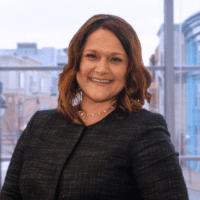Due to the sudden onset of the COVID-19 pandemic in March of 2020, Schools, Municipalities and other public bodies have been faced with challenging circumstances as to maintaining compliance with the rules governing open meetings, and particularly the Pennsylvania Sunshine Act, while also maintaining proper COVID mitigation and social distancing strategies. In April of 2020, Pennsylvania adopted Act 15 of 2020, which provided some relief to public bodies by granting explicit authority to conduct virtual meetings while providing guidance regarding how those meetings were to be advertised and conducted.
A recent court decision, however, should be taken as a reminder that, while Act 15 excused public bodies from some of the legal requirements related to public meetings, the requirements of the Sunshine Act must still be followed carefully. In a recent case out of Lackawanna County, the Court of Common Pleas invalidated a meeting of the Scranton School Board for non-compliance with Act 15 and the Sunshine Act. 218 staff members who were furloughed at said meeting were reinstated, with back pay and benefits, due to the error.
The issue before the Court was that the District advertised to the public that they could view the meeting via the District’s YouTube channel as it was being conducted. However, just prior to the meeting, the District learned that technical issues with YouTube prevented the meeting from being broadcast live. Nonetheless, the District preceded with the meeting and tried to cure the deficiency by switching the live video broadcast to the District’s Facebook page, as well as uploading a recording of the video on YouTube the next day. However, the Court found neither act could cure the defect, as the Facebook platform was not the advertised platform for the public to view the meeting, and the recording the next day did not suffice because it was not a “real-time” broadcast of the event.
Although this decision is not binding in other counties absent an appeal to Commonwealth Court, it should be taken by public bodies as a warning that they cannot assume that the Courts will be sympathetic or lenient to districts or municipalities because of the extreme pressures of the COVID-19 pandemic. In this case, the District was faced with unforeseen technical challenges which it attempted to cure; however, the court invalidated the board’s actions because of the negative effect on public participation in the meeting. Boards should consult with their solicitors to ensure that all meetings fulfill the technical requirements of Act 15 and the Sunshine Act, and, if any issues arise which may put that compliance in doubt, should call and advertise a special meeting as quickly as possible to ensure that their actions will not be overturned in litigation.

